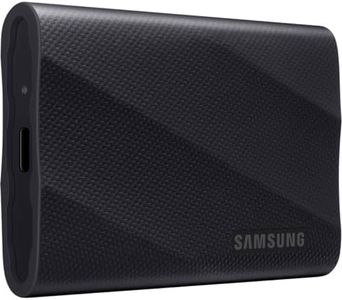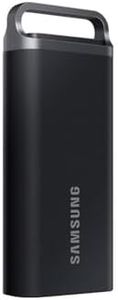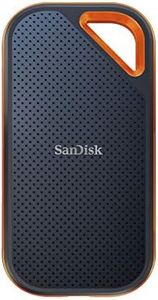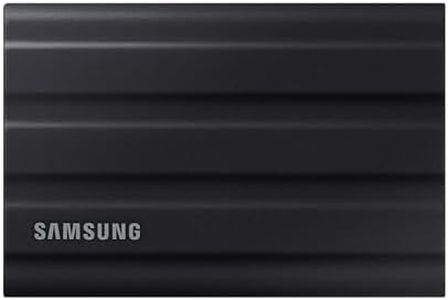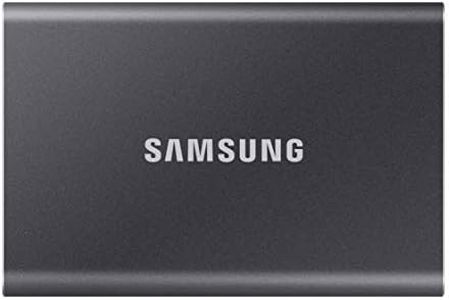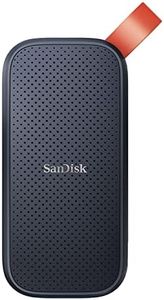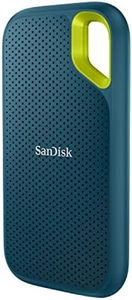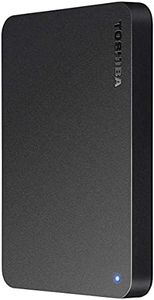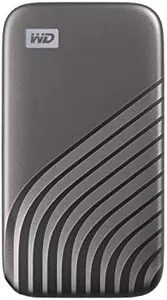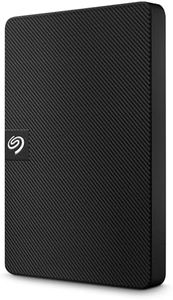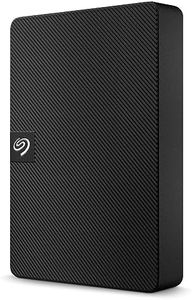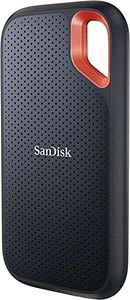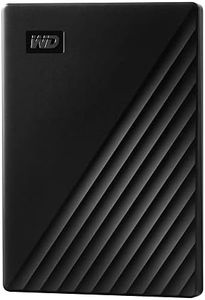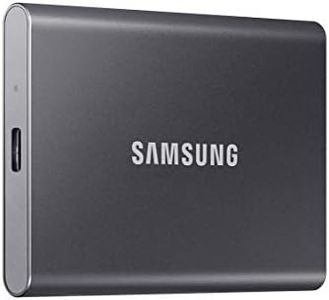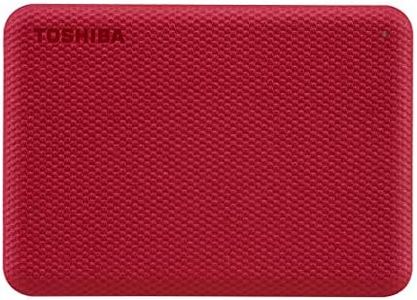We Use CookiesWe use cookies to enhance the security, performance,
functionality and for analytical and promotional activities. By continuing to browse this site you
are agreeing to our privacy policy
10 Best Portable Hard Drives
From leading brands and best sellers available on the web.By clicking on a link to a third party's website, log data is shared with that third party.
Buying Guide for the Best Portable Hard Drives
Selecting the right portable hard drive can make a big difference in how easily, safely, and quickly you store and move your files. It's important to think about what you'll be using the hard drive for—such as backing up your computer, carrying files between locations, or storing photos, videos, and other large data sets. By understanding the key factors that set drives apart, you’ll be able to narrow down your options and find a device that works smoothly for your needs.Storage CapacityStorage capacity tells you how much data the portable hard drive can hold. This is measured in gigabytes (GB) or terabytes (TB). For basic document storage or occasional file transfers, a smaller drive (such as 500GB to 1TB) is usually enough. If you want to store lots of photos, videos, games, or back up your entire computer, look for higher capacities like 2TB, 4TB, or higher. Think about your current and future file storage needs when selecting the right capacity—there's no need for a huge drive if your files are light, but more space is always helpful for media-heavy or backup uses.
Drive Type (HDD vs SSD)Portable hard drives typically come in two types: Hard Disk Drives (HDDs) and Solid State Drives (SSDs). HDDs use spinning disks and usually offer more storage for less money, but they are heavier, slower, and more prone to damage from drops. SSDs have no moving parts, making them faster, lighter, and more durable but generally more expensive per gigabyte. If you plan to move the drive around a lot, want faster speeds, or need something tough, SSDs are often better. If you just need large amounts of affordable storage for less frequent access, an HDD works well.
Transfer SpeedTransfer speed is how quickly files can be copied to or from the portable hard drive. This depends on the connection type (such as USB 2.0, USB 3.0/3.1, USB-C, or Thunderbolt) as well as the drive itself. USB 2.0 is slower and suitable for small files or occasional use, while USB 3.0/3.1, USB-C, or Thunderbolt provide much faster speeds, which is great for transferring big files or backups often. Match the port on your computer and consider your usual file sizes—higher speeds save you time if you move large files or lots of data regularly.
Durability and Build QualityDurability refers to how well the hard drive will stand up to everyday bumps, drops, or rough handling. SSDs are naturally more durable due to having no moving parts, but some drives also come with features like shock-proofing, water resistance, or rugged casings. If you’ll be traveling frequently or working in different environments, a tough, well-built drive is important to keep your data safe. On the other hand, if the drive will mostly stay on your desk, a standard model is often enough.
Size and WeightSize and weight determine how easy it is to carry the drive around. Portable hard drives come in compact, lightweight forms designed to fit in small bags or even pockets, while some larger drives may be bulkier. If portability is your main concern (for travel or daily transport), choose a smaller, lighter drive. If the drive will mostly stay in one place, these aspects matter less.
CompatibilityCompatibility is all about making sure the portable hard drive will work with your devices and systems. Most drives are formatted for either Windows or macOS out of the box, but can be reformatted as needed. Some are 'plug and play' (no setup necessary) while others may require installation of drivers. Consider what devices and operating systems you use now and may use in the future to avoid any frustration at setup.
Security FeaturesSecurity features like password protection or hardware encryption can keep your data safe, especially if your files are sensitive or you use the drive on multiple computers. Some drives offer built-in encryption or require a password to access data, adding an extra layer of safety. If data privacy is a concern, prioritize a hard drive with these security functions. If you're just storing non-sensitive files, these features may be less important.
